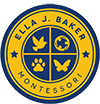Early Childhood
-
Pre-kindergarten (3 - 4 year olds) & Kindergarten
Our Early Childhood (or "Children's House") classroom environment is carefully designed to meet the needs of children between the ages of 3 and 6, who are described by Dr. Montessori as possessing "absorbent minds".
What Your Child Will Learn
Rigorously trained teachers carefully observe their children in the Early Childhood environment, identifying their interests and abilities and developing personalized learning plans tailored to each child’s needs. They guide the learning, introducing new lessons and levels of difficulty as appropriate. The teacher offers the encouragement, time, and tools needed to allow children’s natural curiosities to drive learning, and provides choices that help them learn, grow, and succeed.
After participating in a demonstration of a material from the teacher, the children are free to choose activities and to work on their own or with a partner for as long as they wish. Since there is usually only one of each material, your child will develop patience and self-control as he waits for a material to become available. As children move forward, they develop the ability to concentrate and make decisions, along with developing courtesy and a sense of community responsibility.
The Early Childhood classroom offers your child 5 areas of study: Practical Life, Sensorial, Math, Language, and Cultural Studies.
Practical Life
Children learn daily-life skills, such as how to get dressed, prepare snacks, set the table, and care for plants and animals. They also learn appropriate social interactions, such as saying please and thank-you, being kind and helpful, listening without interrupting, and resolving conflicts peacefully. In addition to teaching specific skills, Practical Life activities promote independence, and fine-motor and gross-motor coordination.
Sensorial
Children refine skills in perceiving the world through their different senses, and learn how to describe and name their experiences—for example, rough and smooth, perceived through touch. Sensorial learning helps children classify their surroundings and create order. It lays the foundation for learning by developing the ability to classify, sort, and discriminate—skills necessary in math, geometry, and language.
Math
Through hands-on activities, children learn to identify numerals and match them to their quantity, understand place-value and the base-10 system, and practice addition, subtraction, multiplication, and division. They also explore patterns in the numbering system. With an exploratory approach, children do more than just memorize math facts; they gain a firm understanding of the meaning behind them.
Language
Activities throughout the Early Childhood classroom teach language, help children acquire vocabulary, and develop skills needed for writing and reading. The ability to write, a precursor to reading, is taught first. Using hands-on materials, children learn letter sounds, how to combine sounds to make words, how to build sentences, and how to use a pencil. Once these skills are acquired, children spontaneously learn to read.
Cultural Studies
A wide range of subjects, including history, geography, science, art, and music, are integrated in lessons in the cultural area of the curriculum. Children learn about their own community and the world around them. Discovering similarities and differences among people and places helps them develop an understanding and appreciation of the diversity of our world, and a respect for all living things.
Montessori Learning Materials
Montessori materials are not only beautiful and inviting, but ingenious. They teach only one skill at a time to allow the child to work independently and master the intended concept. The materials are also “self-correcting.” This means the child is able to identify if they have done an activity accurately and try again without intervention from a teacher. For example, if a large block is stacked atop a tower of shorter blocks, the tower will fall down. Working with self-correcting materials helps children develop confidence and self-sufficiency and promotes critical thinking. In a sense, they become their own teachers—a skill that will last for life.
"Never help a child with a task at which he feels he can succeed."
— Maria Montessori







